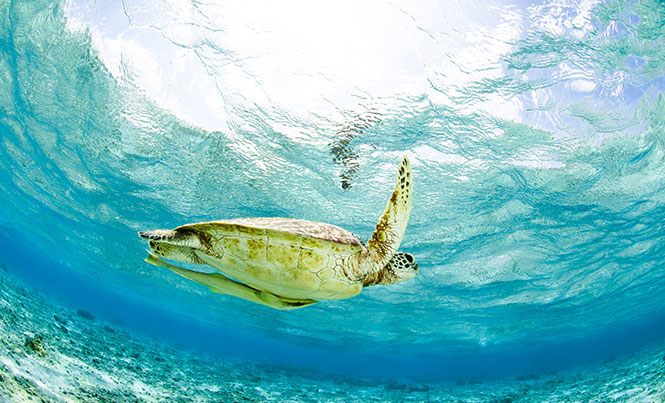
Environmental factors such as exposure to polluted habitats may be contributing to an increase in tumors
Marine animals also get diseases and human effects on the marine ecosystems such as pollution could be part of the problem. For example, papilloma is a disease formed by uncharacteristic growths on the skin and are known to occur in many species of fish and marine turtles (and many land animals too). It is a general term referring to a tumor (also known as warts or fibromas) and is not specific to a single disease.
There is a lot of rese
Some species of fish such as eels, flatfish or salmon, are known to develop these tumors as well as fish in aquaria and marine turtles although the incidence seems to be higher in certain geographic areas. In the case of marine turtles, they tend to spend a good amount of time in coastal habitats which are more likely to have important environmental impacts. This disease seems to be more prominent in warmer climates affecting up to 50-70% of marine turtles. Studies have shown that turtles living in areas with high concentrations of nitrogen show these tumors too (http://www.smithsonianmag.com/smart-news/pollution-hawaiis-farms-and-cities-causing-sea-turtles-get-deadly-tumors-180952912/?no-ist). Run-offs from land from aggressive agricultural practices or concentration of waste from urbanization can trigger explosions of harmful algae which disrupts the ocean ecosystem and affect our marine animals in one way or another.